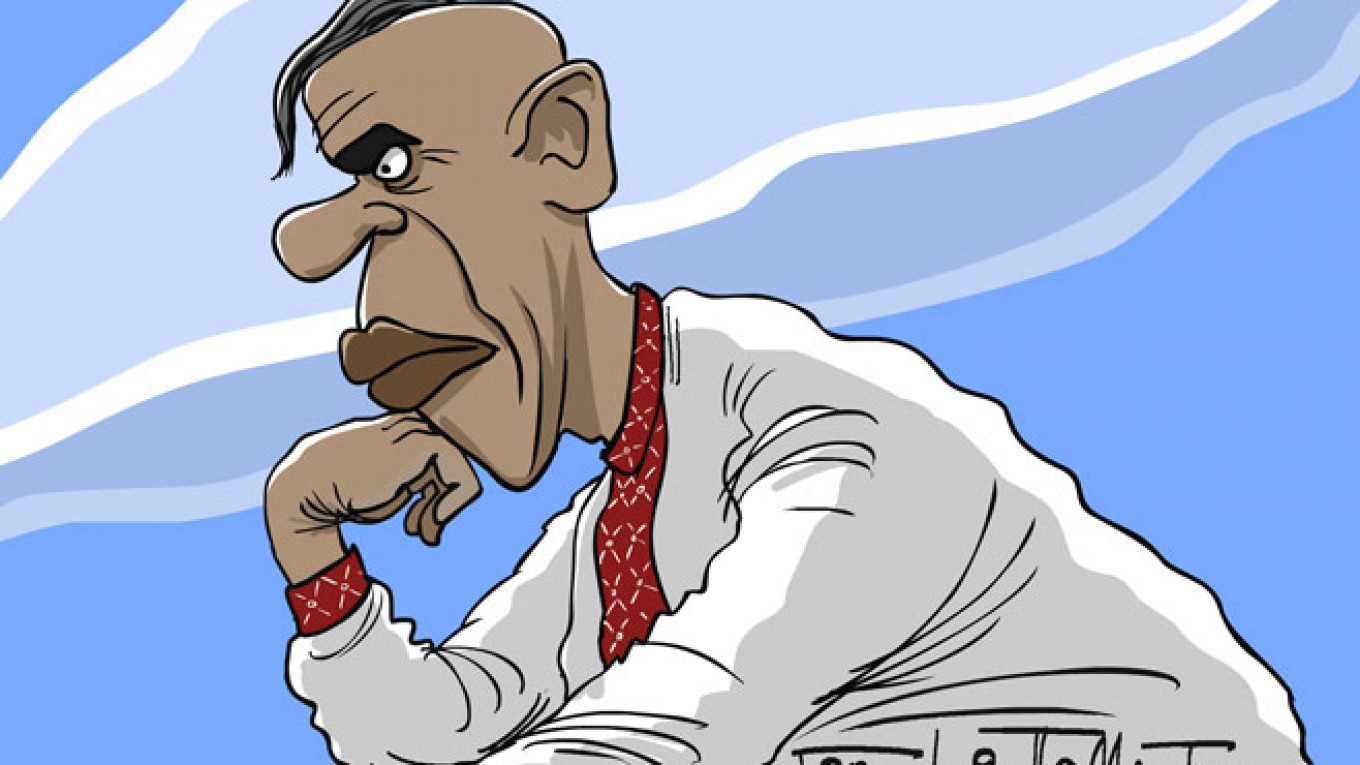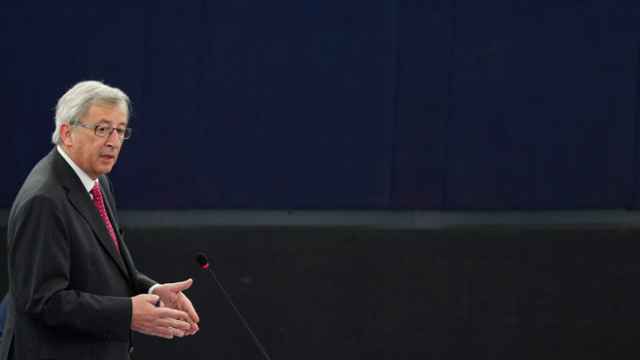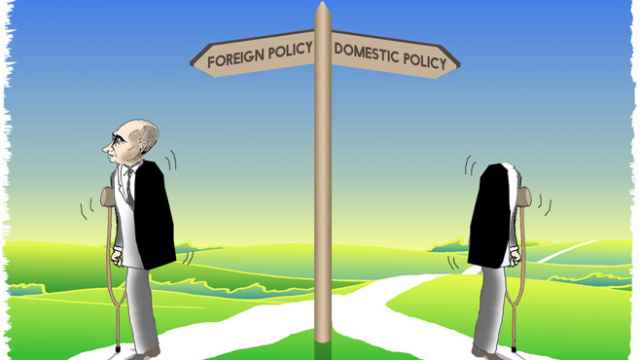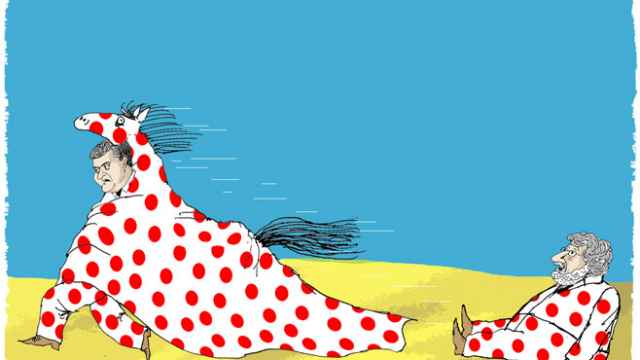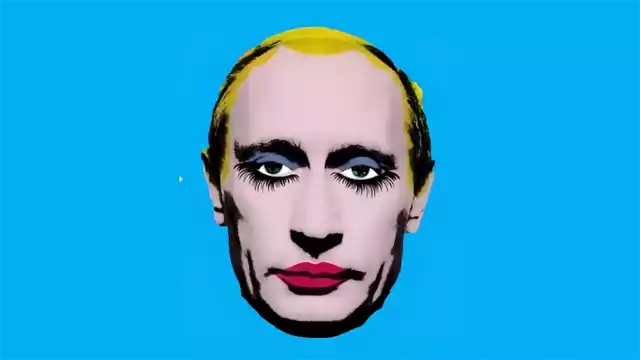A person could get a headache trying to sort out the mess in Ukraine. It is as if there are two jigsaw puzzles, each showing the same picture of Ukraine, but containing pieces of differing shapes and sizes. In fact, the West bears a share of the blame for this aggravating situation. Moscow does too, although Russia has at least acted more consistently in this conflict.
The latest example is the decision by the U.S. Congress to deny funding to the Ukrainian Azov battalion, accusing it of neo-Nazi ideology. The battalion's soldiers not only wear the Nazi wolfsangel symbol on their sleeve — the same worn by the 2nd SS Panzer Division Das Reich — but also display the SS spirit in the Donbass by shedding a great deal of civilian blood. Here, the decision of the U.S. Congress is just.
The problem is, what should Washington do about the rest of the nationalist volunteer forces in Ukraine that are no better than Azov? Why does the U.S. support them? Is it only because U.S. President Barack Obama dislikes Kremlin policy? Former U.S. President Franklin Roosevelt was not too fond of Kremlin policy either, but that did not drive him into the arms of Hitler!
Hasn't the West already had enough of the Nazis, what with SS veterans in the Baltic states holding marches? In short, there are two picture puzzles — one depicting the U.S. denying support to the Azov battalion, and another showing Washington providing aid to similar militias. The pieces just don't fit together. Unfortunately, this is an ongoing problem.
Washington officially supports the Minsk agreement and even lectures Moscow occasionally about violating it. But if it is so concerned about that agreement, why doesn't the United States instruct the government in Kiev to do something about nationalist Right Sector troops headed by Dmytro Yarosh that openly refused to honor the Minsk agreement?
After all, when OSCE observers report that some "third force" is constantly violating the cease-fire, it is clear that they are referring to Ukrainian nationalist fighters. Another mystery: Does Washington want to uphold or disrupt the Minsk agreement?
By the way, isn't it a little strange for the West to claim support for the Minsk II agreement — in which representatives of the self-proclaimed Donetsk and Luhansk people's republics played at least a nominal role — while at the same time supporting what the Kiev government refers to as "anti-terrorist operations" in eastern Ukraine? I would like to know whom the West thinks Kiev is battling in the Donbass — "terrorists" or separatists? There is a difference.
That is not all. I can understand the desire of the U.S. to put the Kiev authorities in a good light. Cossack trousers and traditional embroidered shirts are only fitting for a folk festival. A state looking to integrate with the West should look the part. That is why Washington began putting Ukrainian leaders into suit jackets and ties right from the start.
That also explains the burning desire to have held at least the semblance of presidential elections as soon as possible after Maidan, and after that, equally questionable elections for the Verkhovna Rada. The next step was to quickly begin reforms — a very risky undertaking in today's unstable conditions. In short, it is, in principle, fully understandable why Washington wants to make the new Kiev administration come across as a full-fledged government.
However, it remains unclear how any European state — or any country, for that matter — can tolerate the existence of domestic militias that operate outside the control of the central government. And considering Kiev's reliance on Washington, that question should get redirected to the United States.
Ukrainian President Petro Poroshenko earlier pledged to withdraw all nationalist volunteer militias from the conflict zone. He never did. The Ukrainian siloviki have repeatedly said they intend to disarm illegal fighting units. They have not. How are we supposed to understand that?
Perhaps the Kiev authorities and their U.S. handlers do not really want to be rid of those troops, are physically unable to demobilize them, or else are unaware that those "Nazis" are not simply handing out flowers among the civilians of eastern Ukraine.
In response to the timid threat from Kiev, the Right Sector immediately and demonstratively held military exercises — and of course, without receiving permission from the authorities. The "Nazis" only "notified" Poroshenko of their maneuvers.
The Right Sector has stated that its military forces will continue refusing to obey the Ukrainian General Staff. Even in Lviv, the capital of Western and pro-European Ukraine, fighters wearing camouflage hold rallies at which they not only criticize the president — who, by the way, deserves the criticism he gets from both the right and the left — but also hurl the dirtiest insults at him.
And finally, Yarosh has announced plans to form a full-fledged army as an alternative to the Ukrainian forces. It is seemingly an ultimatum directed at the authorities.
Of course, that is all simply nonsense for any normal state, and it shows why the pieces of the two Ukrainian puzzles do not match. Considering that Ukraine is constantly on the verge of yet another Maidan, it is possible that Ukrainian neo-Nazis will lead the next revolution.
That is why people here are getting a headache from this mess. The United States might be too far away to feel any discomfort, but it is strange that the European Union has yet to come down with a migraine as well.
Pyotr Romanov is a journalist and historian.
A Message from The Moscow Times:
Dear readers,
We are facing unprecedented challenges. Russia's Prosecutor General's Office has designated The Moscow Times as an "undesirable" organization, criminalizing our work and putting our staff at risk of prosecution. This follows our earlier unjust labeling as a "foreign agent."
These actions are direct attempts to silence independent journalism in Russia. The authorities claim our work "discredits the decisions of the Russian leadership." We see things differently: we strive to provide accurate, unbiased reporting on Russia.
We, the journalists of The Moscow Times, refuse to be silenced. But to continue our work, we need your help.
Your support, no matter how small, makes a world of difference. If you can, please support us monthly starting from just $2. It's quick to set up, and every contribution makes a significant impact.
By supporting The Moscow Times, you're defending open, independent journalism in the face of repression. Thank you for standing with us.
Remind me later.


